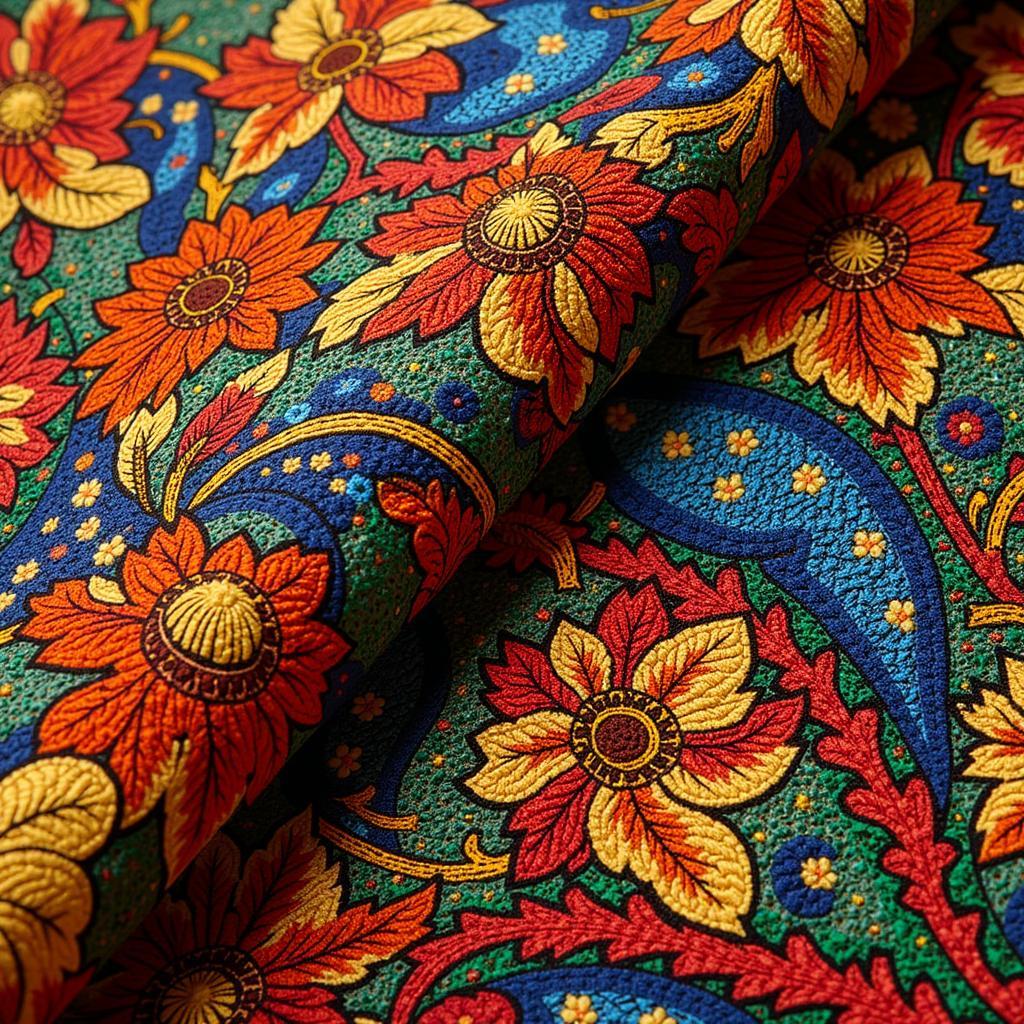Understanding Your African Grey Fluffed Up
An African Grey Fluffed Up can be a common sight, and understanding why it happens is key to responsible parrot ownership. This seemingly simple action can communicate a range of emotions, from contentment and relaxation to illness and discomfort. Knowing how to interpret your feathered friend’s fluffiness is vital for ensuring their health and happiness. Let’s delve into the fascinating world of African grey body language and explore the various reasons behind this behavior.
Decoding the Fluff: Why is My African Grey Fluffed Up?
Several factors contribute to an African grey fluffed up appearance. These range from perfectly normal behaviors like regulating body temperature to signs of potential health concerns. Recognizing the difference can help you provide the best possible care for your parrot.
Temperature Regulation: A Natural Response
Just like us, African greys adjust their plumage to maintain a comfortable body temperature. Fluffing their feathers traps warm air close to their body, acting as insulation against cooler temperatures. Conversely, in warmer weather, you might notice your parrot holding its feathers closer to its body. Remember their african grey temperature tolerance can be different from ours.
Contentment and Relaxation: Signs of a Happy Parrot
A slightly fluffed up African grey, especially when accompanied by soft chirping or gentle preening, often signifies contentment and relaxation. This is similar to a cat purring or a dog wagging its tail. It’s a positive sign that your parrot feels safe and comfortable in its environment.
“A relaxed, fluffed up African grey is a happy African grey,” says Dr. Ava Thompson, an avian veterinarian with over 20 years of experience. “This is a natural behavior that indicates they are feeling secure and content in their surroundings.”
Sleepiness and Drowsiness: Preparing for Slumber
As bedtime approaches, you may observe your African grey fluffing up its feathers and becoming quieter. This is a sign that they are preparing for sleep and conserving energy. Providing a dark, quiet space for your parrot to sleep can help promote healthy sleep patterns.
Illness and Discomfort: When to Seek Veterinary Attention
While fluffing up is often a normal behavior, it can also be a sign of illness or discomfort. If your African grey is fluffed up for prolonged periods, especially if accompanied by other symptoms like lethargy, loss of appetite, changes in droppings, or respiratory issues, it is essential to seek veterinary attention immediately.
“Any sudden change in behavior, combined with fluffing, warrants a visit to the vet,” advises Dr. Thompson. “It’s always better to be safe than sorry when it comes to your parrot’s health.”
What if my African Grey is Sitting Tight and Fluffed Up?
If your african grey parrot sitting on tight and is also fluffed up, this could indicate a more serious issue. This posture, coupled with fluffed feathers, might suggest the bird is trying to conserve heat and energy, possibly due to illness. Monitoring for other symptoms and consulting a veterinarian is crucial in such situations.
Conclusion: Paying Attention to Your Feathered Friend
Observing your African grey fluffed up requires careful consideration of accompanying behaviors and other contextual clues. Recognizing the difference between a content, sleepy parrot and a potentially sick one is crucial for ensuring their well-being. By understanding their body language and paying attention to their overall health, you can provide the best possible care for your beloved companion. If your African Grey is also closing its eyes and sitting, it’s important to understand what it means. You can find more information about african grey close their eyes n sit it meaning. Understanding african grey parrot communication is essential for building a strong bond.
FAQ
-
How can I tell if my African grey is fluffed up due to illness? Look for accompanying symptoms like lethargy, loss of appetite, changes in droppings, or respiratory issues.
-
Is it normal for my African grey to fluff up at night? Yes, fluffing up before sleep is a normal behavior as they are conserving heat and preparing for rest.
-
Should I be concerned if my African grey is frequently fluffed up? If the fluffing is persistent and accompanied by other unusual behaviors, consult a veterinarian.
-
What is the ideal temperature for an African grey? They generally thrive in temperatures between 70-80°F (21-27°C).
-
Can stress cause an African grey to fluff up? Yes, stress can lead to changes in behavior, including feather fluffing.
-
What are other signs of a happy African grey? A happy African grey will be active, playful, vocal, and interact with its environment and owner.
-
Do blue african love birds fluff up too? Yes, all birds, including lovebirds, fluff up their feathers for thermoregulation and as a sign of contentment or illness.
You might also be interested in reading more about the temperature tolerance of your African Grey. Find out more here: african grey temperature tolerance
When you need assistance, please contact us via Phone: +255768904061, Email: kaka.mag@gmail.com or visit our address: Mbarali DC Mawindi, Kangaga, Tanzania. We have a 24/7 customer care team.



![The 2018 AFCA conference in [Tên thành phố, quốc gia]](https://omenkamag.com/wp-content/uploads/2024/10/african-fine-coffee-association-2018-conference-670473.webp)
